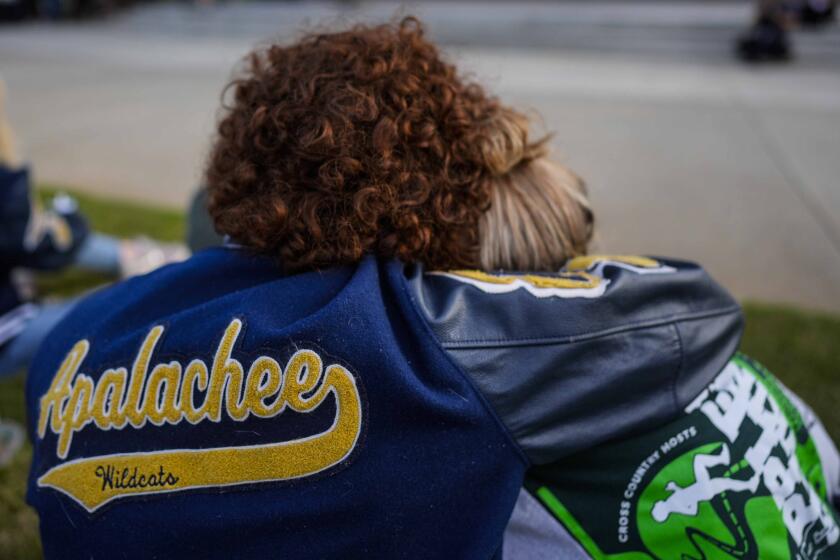Blackwater’s closed hearing
This week, a federal judge in Washington is presiding over preliminary hearings in a case in which five employees of the Blackwater security firm are accused of killing 14 Iraqi civilians in 2007. A case involving the U.S. presence in Iraq is of obvious public interest, but if you want to get a seat in the courtroom -- or to read about what goes on there -- don’t bother. District Judge Ricardo Urbina has closed the hearings to the public and the media.
Urbina’s action is an extreme and unjustifiable response to fears about pretrial publicity. It is also difficult to square with long-standing Supreme Court decisions requiring that courtrooms be open unless there are extraordinary circumstances justifying closure.
The preliminary hearings are exploring whether government prosecutors are illegally making use of statements the defendants made to State Department interviewers under a grant of immunity. Urbina closed the hearings, he said, because he feared publicity at this early stage of the proceedings would influence witnesses and potential jurors and undermine the defendants’ right to a fair trial. He also expressed concern about the disclosure in open court of secret grand jury material.
It’s appropriate for a judge to worry about the effect of prejudicial publicity. But the Supreme Court repeatedly has insisted that there are ways to minimize the effect of publicity without closing the courtroom or forbidding the media to report on what transpires there. For example, when it comes time to select the jury, candidates can be subjected to what the late Chief Justice Warren E. Burger called “searching questioning ... to screen out those with fixed opinions as to guilt or innocence.”
In 1980, the Supreme Court ruled that only full-dress trials must be public. But in 1986, in a case involving a sensational murder trial in Riverside, the court extended its ruling to preliminary hearings. “Although grand jury proceedings have traditionally been closed to the public and the accused,” Burger wrote, “preliminary hearings conducted before neutral and detached magistrates have been open to the public.”
As for the revelation of secret grand jury material, to the extent that’s a problem, the judge could close sessions in which such testimony was likely to play a part and release redacted transcripts later. But blanket secrecy is no more justified by a fear of disclosing grand jury testimony than it is by a concern about pretrial publicity.
It’s not a sign of weakness for a judge to reconsider a hasty or misguided decision. Urbina should do so.
More to Read
Sign up for Essential California
The most important California stories and recommendations in your inbox every morning.
You may occasionally receive promotional content from the Los Angeles Times.










